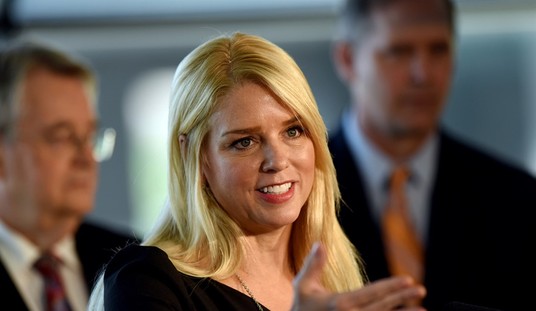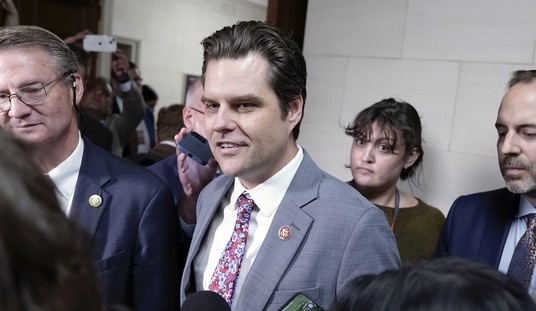Are Americans in this together? Dozens of protests against excessive stay-at-home orders are set for Friday, May 1. They won’t unite the country, but if lockdown supporters humble themselves and pay attention, they just might learn something.
Reopen America is their rallying cry after weeks of lockdown, nearly seven weeks in California, Illinois, and New York. Protesters, either in caravans or risking legal trouble in crowds, will make their case in cities from coast to coast.
They will carry the voices of some of the 26.5 million unemployed as well as the small business owners on the cusp of losing everything they’ve built. Anyone simply frustrated with the political power grabs or the various civil liberties violations will sympathize with the protests.
However, there may be many more Americans unsympathetic with the demonstrations. A recent poll found 65 percent said June or later might be the safest time for groups of 10 or more to gather. A measly 10 percent said groups that size could safely assemble by the end of April, while 21 percent said the end of May was more appropriate.
Surely the protests will persuade a few people that the economic and societal ramifications of lockdowns deserve as much urgency as COVID-19 itself.
Recommended
President Donald Trump just signed yet another executive order exercising his authority under the Defense Production Act of 1950. He’s ordering meat processing plants to stay open after industry warnings of the food supply chain “breaking” since hotels, restaurants, and schools are no longer there to receive orders. No word yet on an order to stop the dumping of milk.
Over 90 percent of the US population has been under some mandatory shelter-in-place order. The White House’s latest estimated projection of COVID-19 deaths in the country is more than 74,000 by August. Risks have to be mitigated, but this disease is not the only one.
Concurrent crises of mental health, domestic violence, and suicide are emerging, with reported hotline calls spiking in Colorado, New York City, and rural Missouri. A study in Michigan predicts that the state will see a 32 percent increase in suicides as a result of the government’s response to COVID-19.
Meanwhile, police in Philadelphia won’t make arrests for property theft or drug crimes during an emergency, and in California, residents are warned that seven “high-risk” sex offenders were released from jail to protect them from COVID-19.
Some notorious violators of stay-at-home orders, like the lone paddleboarder in Malibu and the mom who took her kids to a park in Idaho, have not avoided handcuffs.
A hair salon owner in Dallas, Texas, could be next, as she ignores city fines and court orders to cease and desist. Less bold is the owner of a drive-in movie theater in McHenry, Illinois, who is awaiting government approval to operate a glorified parking lot.
Even some big box stores aren’t immune to the arbitrary orders to shutter. Hobby Lobby refused to close in Dallas, to the benefit of anyone who needed materials to make a homemade mask. A county judge actually sent police into the crafts store to pull customers out before their shopping was done. Thankfully, his ironfisted rule was upended by the county commission.
If the May 1 protests successfully raise awareness of stories like these, then it is possible public opinion will shift, especially as it becomes more apparent that COVID-19 is not the apocalyptic force many experts predicted.
Unfortunately, it is unlikely that the deep divisions in the country will go away. Too many people are possessed with hate for anyone they perceive as threats to their political worldview. Witness the math teacher who snapped at two students, wishing them a “long, painful death” for playing football outside.
With as divisive as the culture is, there is fear of small-scale violence breaking out. After St. Louis County transparency rules required the release of a document showing personal contact information of so-called “snitches,” people who reported their fellow citizens to police for violating lockdown orders, the document was shared online.
It does say something about the deterioration of such a community, where neighbors would rat on neighbors for petty things like conducting commerce. It’s as if they don’t think of other people as someone’s husband or daughter or uncle or mother.
The best hope then, if there can be no lasting political compromise, is in decentralization. Not only do states have a say, but towns as well. The May 1 protests, and local police responses to them, will indicate to people where the hot spots for liberty and tyranny are.
This coronavirus saga will drag on a while more, and people’s eyes may open up to perspectives they hadn’t previously considered. If South Dakota’s economy picks up nicely despite this pandemic, then perhaps a Californian will wonder why he’s still stuck there and move. Or a more rural community might resist a city’s diktat.
Social distancing doesn’t have to be the new normal, especially if political distancing works better instead. Even if the May 1 protesters don’t succeed in lifting all lockdowns immediately, they probably will reopen many American hearts and minds. For that, they should be thanked for their service.


